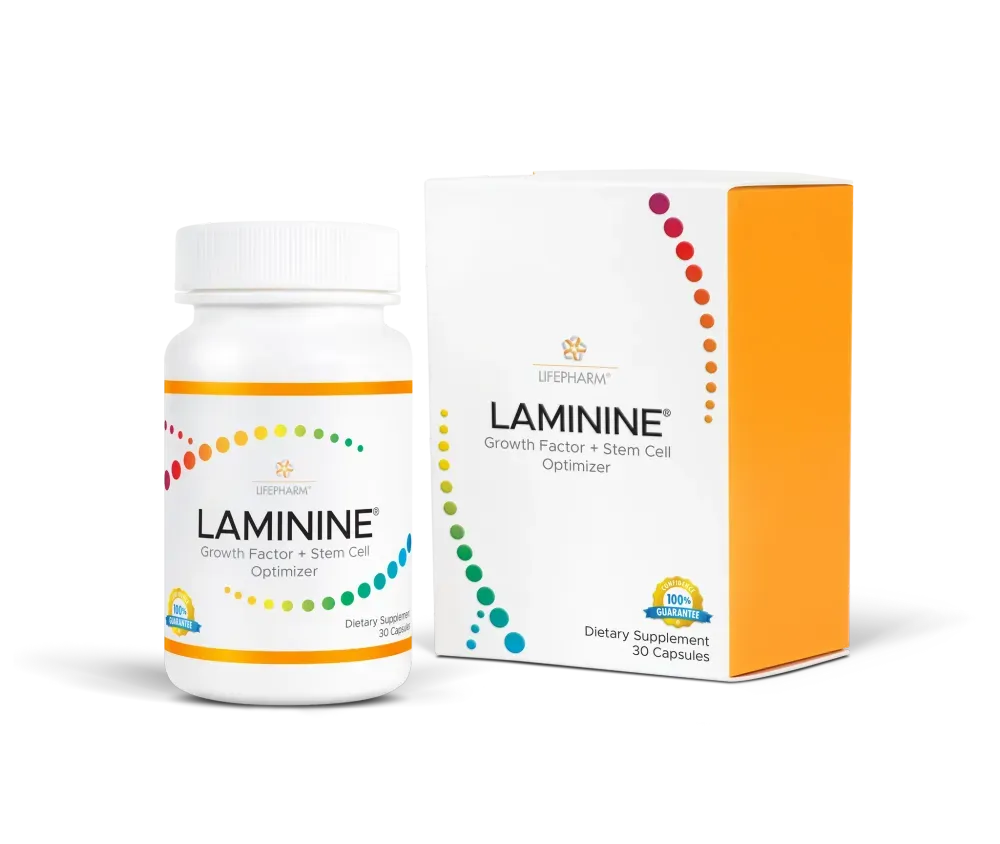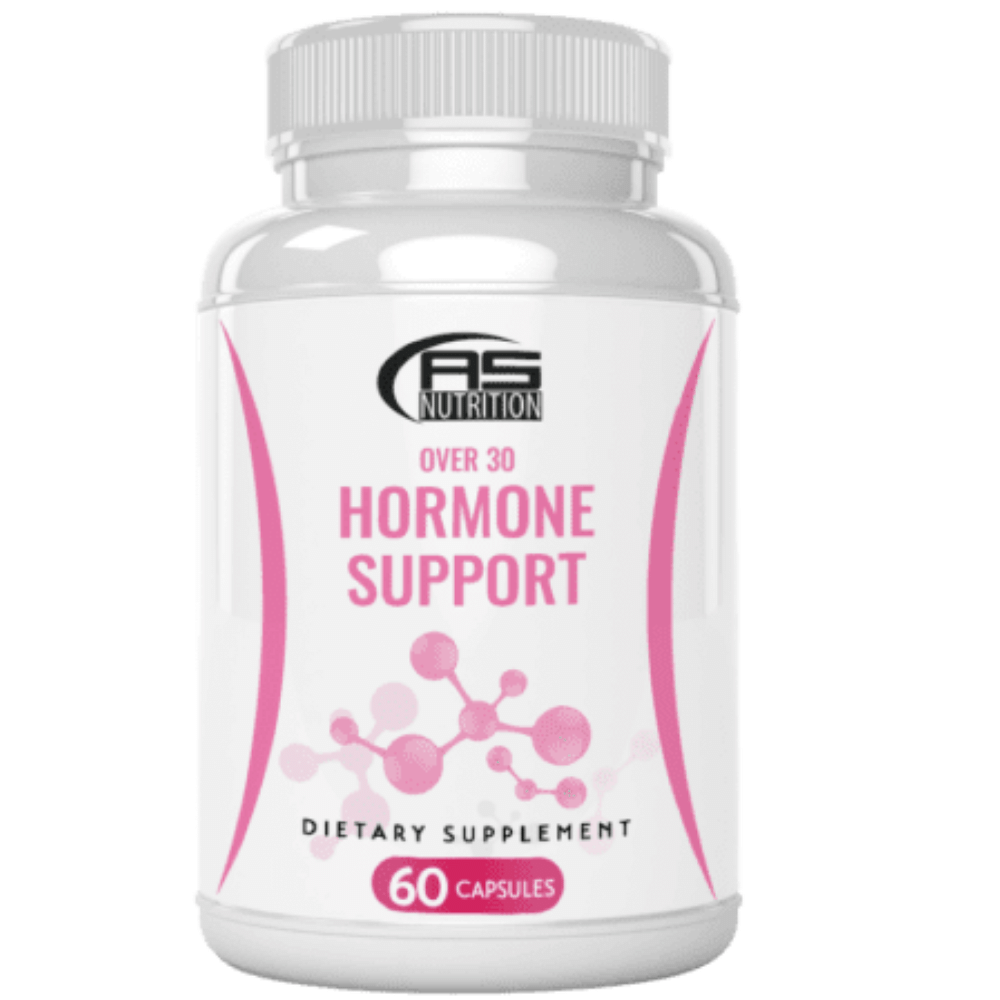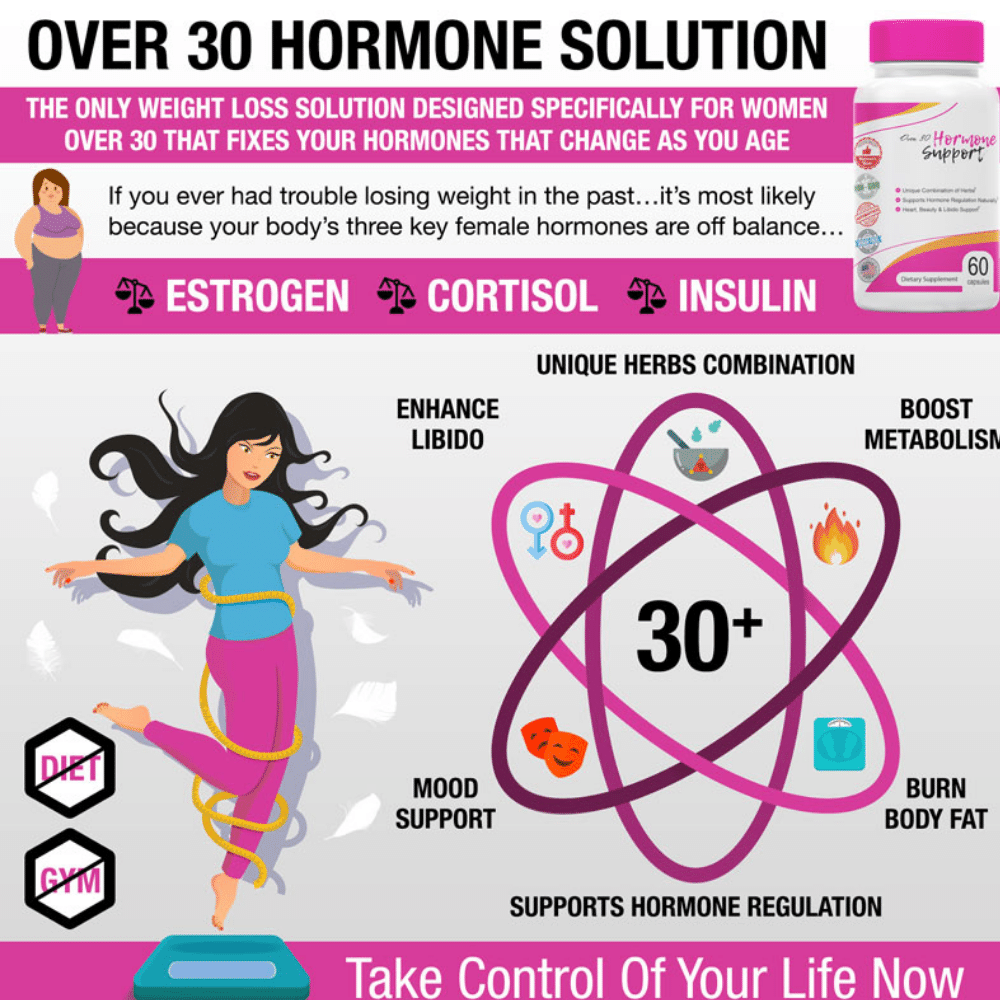Content Summary
Many people don’t realize how much hormones affect how we feel and how our bodies function. Hormonal balance plays a critical role in maintaining overall well-being and promoting optimal bodily functions.
Among the various hormones in our bodies, estrogen holds particular significance, especially in women. However, when estrogen levels become imbalanced, it can lead to a wide range of health issues.
In this article, we will delve into the importance of hormonal balance and explore the potential consequences of excess estrogen on our bodies.
Hormones Control So Many Functions
You’re probably heard of cortisol, the stress hormone. Hormones also control how quickly we burn calories, our libido, acne, hair loss, weight, moods, and much more. A hormone imbalance can lead to symptoms that feel like depression, iron or other deficiency, exhaustion, and poor health.
We need the right balance to function properly. A loose analogy would be putting the wrong type of oil and gas into your vehicle. It might run, but poorly, so you might not realize what the problem is.
Many people have heard that a thyroid imbalance can cause weight gain and other problems, so let’s go over two other imbalances that you may not be aware of.
Adrenal Imbalance
We have two adrenal glands. The adrenal cortex releases hormones that are necessary for us to live. The adrenal medulla releases hormones that aren’t essential, but they’re still important and affect our health.
Following are symptoms for both an insufficiency and an excess of the hormone. If you find you have five or more of the symptoms on either list, it’s possible that your adrenal glands are not functioning as they should.
Adrenal Hormone Excess
Adrenal hormone excess, also known as adrenal hormone hypersecretion or adrenal gland disorders, can lead to various symptoms and health complications. The adrenal glands, located on top of the kidneys, produce several hormones, including cortisol, aldosterone, and adrenaline.
When these hormones are overproduced or not properly regulated, it can result in specific symptoms. Here are some common symptoms associated with adrenal hormone excess:
Weight Gain: Unexplained weight gain, particularly around the abdomen, is often observed in individuals with adrenal hormone excess. This weight gain may be accompanied by a round face and a hump of fat between the shoulders (referred to as a buffalo hump).
High Blood Pressure: Excess production of aldosterone, known as hyperaldosteronism, can cause hypertension (high blood pressure). This condition may lead to persistent headaches, dizziness, and an increased risk of cardiovascular problems.
Muscle Weakness and Fatigue: Adrenal hormone excess can result in muscle weakness and chronic fatigue. Individuals may experience decreased stamina, reduced physical endurance, and a general feeling of tiredness or exhaustion.
Mood Swings and Anxiety: Hormonal imbalances can impact mood regulation. Excess adrenal hormones may contribute to mood swings, irritability, anxiety, and even panic attacks. These symptoms can significantly affect a person's emotional well-being and quality of life.
Abnormal Hair Growth and Skin Changes: In women, excessive production of adrenal androgens (such as DHEA-S) can lead to hirsutism, which is the growth of coarse, dark hair in areas typically seen in males (e.g., face, chest, back). Acne, oily skin, and skin discoloration (hyperpigmentation) are also common.
Irregular Menstrual Cycles and Fertility Issues: Adrenal hormone excess can disrupt the normal balance between adrenal and reproductive hormones, leading to irregular menstrual cycles, heavy or prolonged periods, or even the absence of menstruation (amenorrhea). Fertility problems and difficulty conceiving may also arise.
Osteoporosis: Long-term excess cortisol production can cause decreased bone density and increase the risk of osteoporosis. This can lead to frequent fractures, particularly in the spine, hips, and wrists.
Glucose Imbalance: Adrenal hormone excess can affect blood sugar regulation, leading to insulin resistance and impaired glucose tolerance. This may result in symptoms such as increased thirst, frequent urination, and a higher risk of developing type 2 diabetes.
Estrogen Hormone Imbalance
Estrogen hormone might not be what you first think about. The side effects of this kind of imbalance include acne persisting long after puberty, mood swings, facial hair and a swollen tummy! The symptoms are more physical and visual with this imbalance and affect your fertility.
Hormonal Balance and Its Significance
Hormones serve as chemical messengers that regulate numerous bodily functions, including growth, metabolism, reproduction, and mood. Achieving and maintaining hormonal balance is crucial for these processes to work harmoniously. When our hormones are in balance, our bodies function optimally, and we experience overall well-being and vitality.
Understanding Estrogen
Estrogen is a group of hormones primarily associated with female reproductive health, although it also exists in smaller quantities in males. Estrogen is responsible for the development and regulation of the female reproductive system, menstrual cycle, and secondary sexual characteristics. It also influences bone health, cardiovascular function, and mood stability.
The Consequences of Excess Estrogen
While estrogen is essential for numerous bodily functions, an excess of this hormone can have adverse effects. Some of the potential consequences of excess estrogen include:
Hormonal Imbalances: Excess estrogen can disrupt the delicate balance between estrogen and progesterone, leading to conditions such as estrogen dominance. This hormonal imbalance may contribute to irregular menstrual cycles, PMS symptoms, and fertility issues.
Increased Cancer Risk: Prolonged exposure to high levels of estrogen has been associated with an increased risk of certain cancers, such as breast, ovarian, and endometrial cancer. Excess estrogen can stimulate the growth of abnormal cells, leading to the development of cancerous tumors.
Fibroids and Endometriosis: High levels of estrogen have been linked to the development and growth of uterine fibroids, which are noncancerous tumors that can cause pelvic pain and heavy menstrual bleeding. Excess estrogen may exacerbate the symptoms of endometriosis, a condition in which uterine tissue grows outside the uterus.
Mood Disorders: Estrogen plays a crucial role in regulating neurotransmitters that affect mood and emotional well-being. Excessive estrogen levels have been associated with mood swings, depression, anxiety, and irritability.
Weight Gain: Imbalances in estrogen levels can contribute to weight gain and difficulty in losing excess weight. Estrogen influences fat distribution, and when levels are too high, it can promote the accumulation of fat, especially around the hips and thighs.
Cardiovascular Issues: Estrogen helps maintain healthy cholesterol levels and blood vessel function. However, excessive estrogen can lead to an increased risk of blood clots, high blood pressure, and cardiovascular diseases.
The Link Between Estrogen Imbalance and Hair Loss
Estrogen imbalance can indeed contribute to hair loss or hair thinning. Estrogen plays a vital role in promoting hair growth and maintaining the hair follicles' health. When estrogen levels are imbalanced, it can disrupt the normal hair growth cycle and lead to hair-related issues.
Estrogen dominance or excess estrogen, often accompanied by lower levels of progesterone, can have several effects on the hair. Here are some ways estrogen imbalance can contribute to hair loss or hair thinning:
Telogen Effluvium: Estrogen imbalance can trigger a condition called telogen effluvium, where a larger number of hair follicles than usual enter the resting phase (telogen) prematurely. This leads to excessive shedding and a noticeable thinning of the hair.
Androgenic Alopecia: While estrogen is typically protective against androgenic alopecia (pattern hair loss), an imbalance between estrogen and androgens (male hormones) can lead to hair loss. Estrogen helps counteract the effects of androgens on the hair follicles, but when estrogen levels decline or androgen levels increase, the hair follicles become more susceptible to miniaturization and eventual hair loss.
Postpartum Hair Loss: After giving birth, women experience a decline in estrogen levels, which can result in postpartum hair loss. During pregnancy, high levels of estrogen prolong the hair's growth phase, leading to thicker, healthier hair. However, once estrogen levels drop after delivery, a significant number of hairs enter the resting phase, leading to noticeable hair shedding.
Menopause: Estrogen levels naturally decline during menopause. This hormonal shift can contribute to hair thinning or hair loss in women. The decrease in estrogen can make the hair follicles more sensitive to androgens, leading to gradual hair thinning or a more diffuse pattern of hair loss.
It's important to note that while estrogen imbalance can contribute to hair loss or hair thinning, it is often not the sole factor. Other genetic, hormonal, and environmental factors can also play a role. It is recommended to consult with a healthcare professional or a dermatologist specializing in hair disorders to determine the underlying cause of hair loss and develop an appropriate treatment plan.
Treatment options for hair loss related to estrogen imbalance may include hormonal therapies, such as hormone replacement therapy (HRT) or specific medications to address the underlying hormonal imbalance. Lifestyle modifications, a healthy diet, stress management, and hair care practices that promote scalp health can also support hair regrowth and overall hair health.
It is important to note that the specific symptoms and their severity can vary depending on the underlying adrenal disorder. Adrenal hormone excess can be caused by conditions such as Cushing's syndrome, Conn's syndrome (primary hyperaldosteronism), adrenal adenomas, adrenal carcinomas, or adrenal hyperplasia.
If you suspect you may be experiencing adrenal hormone excess, it is crucial to consult with a healthcare professional for proper evaluation, diagnosis, and treatment.
Achieving Hormonal Balance
Maintaining hormonal balance, particularly estrogen balance, is crucial for overall well-being. Here are some tips to support hormonal equilibrium:
A Healthy Diet: Consume a balanced diet rich in whole foods, fiber, and nutrients. Focus on cruciferous vegetables like broccoli and kale, which aid in estrogen metabolism. Reduce processed foods and limit alcohol and caffeine intake.
Regular Exercise: Engage in regular physical activity to support hormone regulation, weight management, and overall well-being. Aim for a combination of cardio and strength training exercises.
Stress Management: Chronic stress can disrupt hormone balance. Incorporate stress-management techniques like meditation, yoga, deep breathing exercises, and sufficient sleep to help regulate hormones.
Avoid Environmental Toxins: Limit exposure to environmental toxins found in pesticides, plastics, and synthetic chemicals, as they can disrupt hormone
If you’re experiencing several of these symptoms, it’s time to look closer. Luckily, there are natural ways to control and manage your hormones so you feel healthy again.
Author's Choice of Supplements for Natural Hormones Balance:
Adrenal Health Supplement
LAMININE BEGINS WITH A STRONG FOUNDATION

LAMININE is a stem cell regeneration supplement that contains the proprietary blend of egg bioactive growth factors, marine proteins, and phyto proteins. Protein bio-factors such as FGF-2 are only available in this egg extract. These unique bio-factors play an important role in the proliferation, differentiation, and survival of cells in almost all organ systems by regulating the activity of multiple genes.
These bio-factors help cells proliferate, optimize cellular functions, and protect DNA by lengthening telomeres. The ends of chromosomes are called telomeres and they protect the DNA from damage. Studies show that telomere length is strongly associated with healthy aging, less stress on the body, and better health. When your telomeres are shorter, your stem cells age faster and can no longer divide, which results in your body aging faster.
Studies show that taking LAMININE daily can help to increase telomerase enzyme activity, which lengthens telomeres.
Have severe pain? Taking 4 capsules per day for 30 days is the best way to experience the fastest results. After that, many customers reduce to only 1-2 capsules per day to maintain benefits.
NutriRise Organic Ashwagandha Capsules

Best for Sleep Immunity and Focus
NutriRise Ashwagandha Withania Somnifera Supplement
NutriRise ashwagandha or withania somnifera supplements are made with 100% organic root extract. This ayurvedic medicine has been used for centuries in India for its many health benefits, which include supporting sleep, immunity, and focus.
NutriRise ashwagandha capsules are high potency, containing 1300 mg of ashwagandha per serving. They also include black pepper for improved absorption and bioavailability.
These capsules are vegan, non-GMO, and free of gluten, soy, dairy, and artificial ingredients. Whether you're looking for natural sleep support, immune support, or a boost of energy, ashwagandha supplements can help you feel your best. Try NutriRise ashwagandha capsules today for wellbeing and vitality.
LEPTIN XI HORMONE TYPE

Revolutionary Hormones Support Formula for Women's Thyroid Hormones and Weight Loss
If you’re a woman over 30, chances are you’ve tried every diet and exercise routine out there to lose weight, but nothing has worked. The reason is that your body’s 3 key hormones - leptin, cortisol and insulin - are out of balance. Women Over 30 Hormone Solution is a revolutionary weight loss solution that balances these hormones, allowing you to finally lose the weight and keep it off.

This innovative solution comes in a convenient pill form that you take once a day. Within weeks, you will start to see a difference in your energy levels, mood and waistline. Women Over 30 Hormone Solution is the safe and effective way to lose weight without restrictive diets or dangerous supplements. Try it today and see the amazing results for yourself!
Most FAQs about Hormones
Which Foods Contribute to Estrogen Production?
Soy Products: Soybeans and soy-based products like tofu, tempeh, soy milk, and edamame are well-known sources of phytoestrogens. They contain isoflavones, such as genistein and daidzein, which have estrogen-like effects in the body.
Flaxseeds: Flaxseeds are rich in lignans, a type of phytoestrogen. They can be consumed in whole seed form or ground into flaxseed meal. Add them to smoothies, yogurt, cereals, or baked goods to reap their nutritional benefits.
Legumes: Various legumes, including chickpeas, lentils, and red clover, contain phytoestrogens. These can be beneficial additions to a balanced diet.
Whole Grains: Certain whole grains, such as oats, barley, and wheat germ, contain phytoestrogens. Opting for whole grain products rather than refined grains is a healthier choice overall.
Fruits and Vegetables: Some fruits and vegetables contain moderate levels of phytoestrogens. Examples include apples, pomegranates, grapes, carrots, and broccoli. Incorporating a wide variety of colorful fruits and vegetables into your diet provides numerous health benefits.
Nuts and Seeds: Almonds, walnuts, and sunflower seeds are among the nuts and seeds that contain phytoestrogens. They are also rich in other nutrients like healthy fats, fiber, and antioxidants.
It is worth noting that the phytoestrogens in these foods are relatively weak compared to the estrogen produced by the human body. The effects of phytoestrogens can vary from person to person.
It is always a good idea to consult with a healthcare professional or registered dietitian before making significant dietary changes or if you have specific concerns about hormonal balance.
Incorporating these foods into a balanced diet can provide a range of health benefits, including potential support for hormonal balance. Remember that a diverse and well-rounded diet, along with a healthy lifestyle, is key to overall well-being.
What is the Link Between Excess Estrogen and Acne
Excess estrogen can contribute to the development or worsening of acne in some individuals. Acne is a multifactorial condition influenced by several factors, including hormonal imbalances. While androgens (male hormones) are the primary drivers of acne, imbalances in estrogen levels can also play a role.
Excess estrogen or estrogen dominance, often accompanied by low progesterone levels, can disrupt the normal hormonal balance and contribute to acne development. Here's how estrogen imbalance can impact acne:
Increased Sebum Production: Estrogen helps regulate sebum (oil) production in the skin. When estrogen levels are imbalanced, particularly in relation to androgens, it can lead to increased sebum production. Excessive sebum production can clog pores and contribute to the formation of acne lesions.
Inflammation: Estrogen has anti-inflammatory properties that help maintain healthy skin. When estrogen levels are low or imbalanced, it can lead to increased skin inflammation. Inflammation plays a role in the development and severity of acne lesions.
Hormonal Fluctuations: Hormonal fluctuations, such as those that occur during the menstrual cycle, can contribute to acne flare-ups. Estrogen levels decrease before menstruation, which can disrupt the normal hormonal balance and lead to increased sebum production and inflammation.
Polycystic Ovary Syndrome (PCOS): PCOS is a hormonal disorder characterized by elevated androgen levels and insulin resistance. In some cases, estrogen levels can be relatively low compared to androgens, contributing to acne development in individuals with PCOS.
After giving birth, women experience a decline in estrogen levels. This hormonal shift can trigger acne flare-ups or the development of postpartum acne.
Treatment options for acne related to estrogen imbalance may include hormonal therapies, such as oral contraceptives or anti-androgen medications, to restore hormonal balance.
Does Estrogen Increase Sex Drive?
Estrogen plays a complex role in sexual desire and libido, but its effects on sex drive can vary depending on several factors. In general, estrogen can have a positive influence on sexual desire in women, but the relationship between estrogen and sex drive is not straightforward and can be influenced by various factors, including individual differences, hormonal fluctuations, and overall health.
Here are some key points to consider regarding the relationship between estrogen and sex drive:
Estrogen and Sexual Desire: Estrogen can contribute to sexual desire and arousal in women. It helps maintain the health of the vaginal tissues, increases blood flow to the pelvic area, and enhances sensitivity, all of which can positively influence sexual desire.
Estrogen and Hormonal Fluctuations: Estrogen levels fluctuate throughout the menstrual cycle. Many women experience increased sexual desire and libido during the mid-cycle when estrogen levels peak, corresponding to ovulation. On the other hand, during other phases of the menstrual cycle, when estrogen levels are lower, sexual desire may vary.
Postmenopausal Effects: After menopause, estrogen levels significantly decrease. This decline can lead to changes in sexual desire, as well as vaginal dryness and reduced vaginal elasticity, which can affect sexual comfort and satisfaction. In these cases, hormonal therapies like estrogen replacement therapy or local estrogen treatments may help alleviate symptoms and improve sexual well-being.
Individual Differences: Every individual's response to hormones, including estrogen, can vary. While some women may experience an increase in sexual desire with higher estrogen levels, others may not see a significant impact or may even experience a decrease in libido.
It is essential to recognize that sexual desire is influenced by a complex interplay of physical, psychological, and relational factors. Hormones, including estrogen, are just one piece of the puzzle. Other factors such as stress, fatigue, mental health, relationship dynamics, and personal beliefs and experiences can also affect sex drive.
If you have concerns about your sexual desire or any hormonal imbalances impacting your libido, it is recommended to discuss these concerns with a healthcare professional or a healthcare provider specializing in sexual health.
They can evaluate your specific situation, consider potential contributing factors, and provide appropriate guidance or treatment options tailored to your needs.
What is the Link Between Adrenal Health and Estrogen?
The link between adrenal hormones and estrogen involves a complex interplay between the adrenal glands and other endocrine organs, such as the ovaries and the hypothalamus-pituitary-gonadal (HPG) axis. While the ovaries are the primary source of estrogen in women, the adrenal glands also contribute to estrogen production to a lesser extent.
It's important to note that while the adrenal glands contribute to estrogen production, the ovaries are the primary source of estrogen in women. Estrogen production from the ovaries is regulated by the HPG axis, involving interactions between the hypothalamus, pituitary gland, and ovaries.
What Type of Test Shows the Most Accurate Estrogen Levels?
To determine if your estrogen levels are within the normal range, you can undergo specific tests that measure estrogen levels in the body. The type of test or combination of tests recommended may vary depending on your specific symptoms, medical history, and the guidance of your healthcare professional.
Here are some common tests used to assess estrogen levels:
Blood Tests: A blood test can measure the levels of various forms of estrogen, including estradiol (the most potent form of estrogen), estrone, and estriol. This test is typically performed by drawing a blood sample, often on a specific day of the menstrual cycle for premenopausal women.
Saliva Tests: Saliva tests are less commonly used but can be used to measure free or unbound estrogen levels. Saliva samples are usually collected at specific times during the day, and the results can provide information about the active and available estrogen in the body.
Urine Tests: Urine tests can provide information about estrogen metabolites, which are breakdown products of estrogen metabolism in the body. These tests can help assess how estrogen is being processed and eliminated from the body.
Follicle-Stimulating Hormone (FSH) Test: FSH is a hormone released by the pituitary gland that helps regulate the menstrual cycle and stimulates the ovaries to produce estrogen. Elevated FSH levels may indicate lower estrogen levels or diminished ovarian function.
It's important to note that hormone levels can fluctuate throughout the menstrual cycle, and the timing of the tests may vary depending on the specific purpose of the evaluation.
For premenopausal women, testing may be performed at specific times in the menstrual cycle, such as during the follicular phase (early phase) or mid-cycle (around ovulation). For postmenopausal women, testing can be done at any time.
It's crucial to discuss your symptoms, concerns, and testing options with a healthcare professional or a healthcare provider specializing in hormone health or endocrinology. They can guide you on the appropriate tests, timing, and interpretation of the results based on your individual circumstances.
Conclusion
Chronic stress and its impact on adrenal health are prevalent in today's society. Recognizing the causes of adrenal stress and implementing effective treatments is essential for maintaining overall well-being.
By incorporating stress management techniques, adopting a balanced diet, prioritizing restful sleep, considering adaptogenic supplements, seeking professional support, and making positive lifestyle changes, individuals can nurture their adrenal health and improve their ability to cope with stress.
Remember, it is essential to prioritize self-care and seek help when needed to restore and maintain optimal adrenal health.
Be Healthy and Happy!
Relevant Reads>>>














